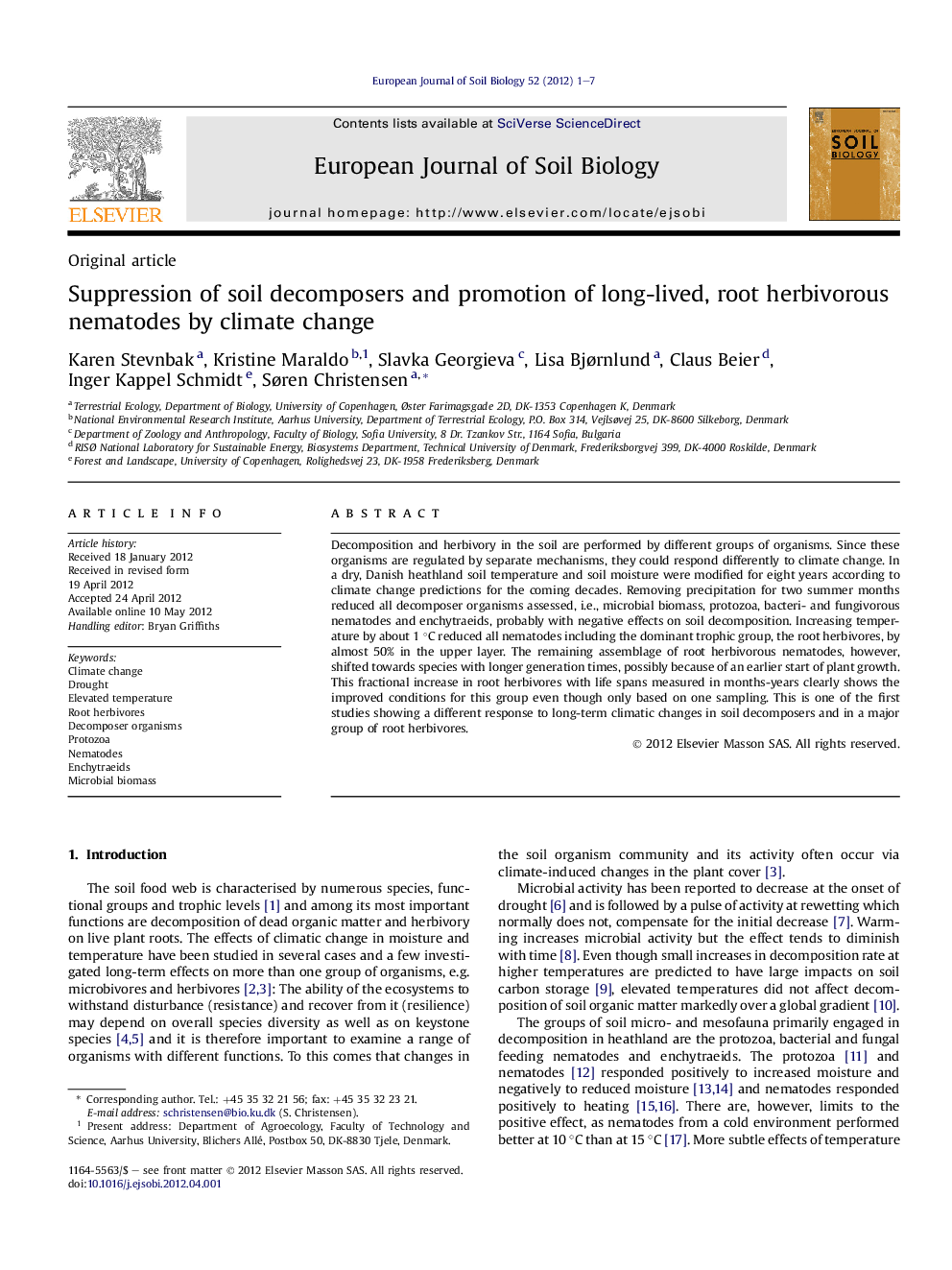| Article ID | Journal | Published Year | Pages | File Type |
|---|---|---|---|---|
| 4392052 | European Journal of Soil Biology | 2012 | 7 Pages |
Decomposition and herbivory in the soil are performed by different groups of organisms. Since these organisms are regulated by separate mechanisms, they could respond differently to climate change. In a dry, Danish heathland soil temperature and soil moisture were modified for eight years according to climate change predictions for the coming decades. Removing precipitation for two summer months reduced all decomposer organisms assessed, i.e., microbial biomass, protozoa, bacteri- and fungivorous nematodes and enchytraeids, probably with negative effects on soil decomposition. Increasing temperature by about 1 °C reduced all nematodes including the dominant trophic group, the root herbivores, by almost 50% in the upper layer. The remaining assemblage of root herbivorous nematodes, however, shifted towards species with longer generation times, possibly because of an earlier start of plant growth. This fractional increase in root herbivores with life spans measured in months-years clearly shows the improved conditions for this group even though only based on one sampling. This is one of the first studies showing a different response to long-term climatic changes in soil decomposers and in a major group of root herbivores.
► Many functional groups of soil decomposers negatively affected by soil drought. ► In contrast to decomposers, herbivores were stimulated by elevated temperature. ► Climate change effects on soil decomposers and root herbivores differ.
